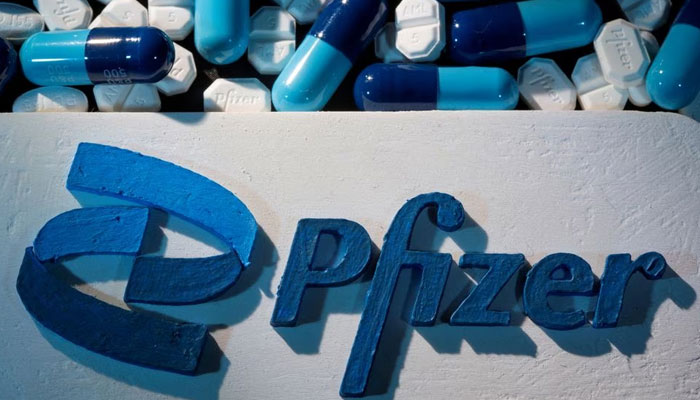Pfizer discontinues daily weight-loss drug over liver toxicity concerns
Pfizer expects to finalise plans for danuglipron late-stage program by end of year, developing once-daily, modified-release version of drug
June 27, 2023

As the race to develop anti-obesity pills intensifies, with a number of big pharma companies eyeing precedence, Pfizer said it is discontinuing its once-a-day experimental obesity pill citing "concerns about liver", however, it will be developing the twice-daily treatment danuglipron.
The stocks of the company Monday were down 5% after its announcement of ceasing to develop its therapy lotiglipron after receiving reports about elevated levels of liver enzymes in those who took the drug.
Pfizer CEO Albert Bourla said an "obesity pill could eventually be a $10-billion-a-year product for Pfizer."
For this year, the overall downfall of the company’s shares was 29% after moving on from COVID vaccine development and therapeutics that enabled the company to earn for the past few years.
According to the company, it expects to finalise plans for the danuglipron late-stage program by the end of the year and is also developing a once-daily, modified-release version of that drug.
The news comes days after competitor Eli Lilly released promising data for its own once-daily experimental pill, orforglipron.
Truist Securities analyst Robyn Karnauskas said "Lilly is now ahead in the race for a once-a-day obesity pill."
"We believe while [twice a day] has advantages, we really need a [once daily] formulation for weight loss," she said in a research note.
Pfizer said last month that danuglipron helped patients lose weight on par with Novo Nordisk's Ozempic in a mid-stage study that tested it in patients with Type 2 diabetes.
US demand for Wegovy and Ozempic, the brand names for Novo Nordisk's once-weekly injections for treating obesity and diabetes respectively, has soared recently.
The enormous demand for treatments like Wegovy could support as many as 10 competing products with annual sales reaching up to $100 billion within a decade, mostly in the US, industry executives and analysts have said.
"None of the patients in the lotiglipron trials reported liver-related symptoms or side effects, there was no evidence of liver failure and none required treatment," Pfizer said.
"Liver enzyme elevations observed in lotiglipron trials have not been seen in patients enrolled in danuglipron trials," the company added.









